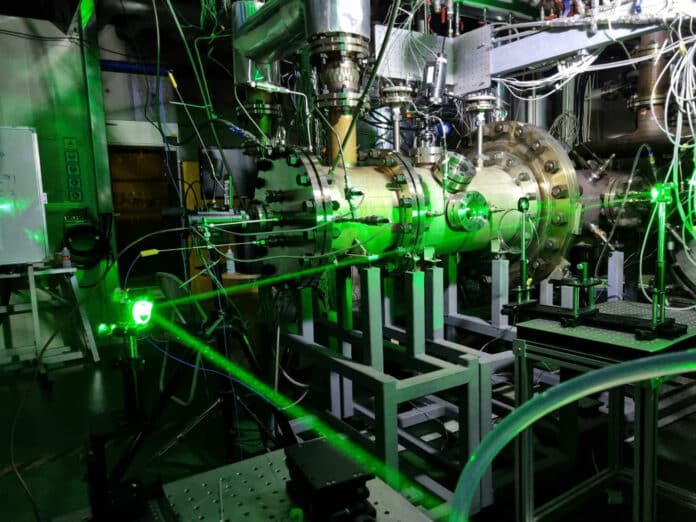Tackling global climate change will require developing solutions to scale carbon capture or decarbonization in all sectors that produce carbon dioxide (CO2).
To meet this requirement, a research team at the Korea Institute of Machinery and Materials (KIMM) has developed an eco-friendly hydrogen co-firing combustor for domestic gas turbines used in power generation that reduces carbon dioxide emissions. The researchers say this is the first time that such technology has been developed in South Korea. KIMM has plans to perform a demonstration of its application to power plants.
The use of hydrogen as a fuel has some disadvantages, such as the risk of high temperatures and flashbacks. Therefore, to overcome this, KIMM improved a fuel injection method that includes fuel splitting, staging, and fuel hole modification. This improved combustion chamber was implemented with the heavy-duty gas turbine developed by Doosan Enerbility. As a result, NOx and combustion instability could have been suppressed to the same level as the original LNG gas turbine while burning a 30% hydrogen fuel blend.
Previously, many efforts were made to encourage the development of co-firing hydrogen combustors, but performance verification was difficult due to the lack of proper combustion test facilities in South Korea. Therefore, the combustor developed by KIMM was transferred to the German Aerospace Center (DLR) during the development process and successfully passed combustion tests in a high-pressure environment. These conditions mimic actual gas turbine operating conditions, and their performance has been verified accordingly.
The development of hydrogen co-firing technology by domestic research institutes and its application to domestic gas turbines shows a way to achieve carbon neutrality in South Korea.
The research reduced the CO2 emissions by 10.4% compared to 100% LNG power generation. Now, KIMM plans to increase the percentage of hydrogen content in fuel by over 50%, thereby causing a 21.4% reduction of CO2 by 2024. Additionally, the team is focusing its research efforts on the goal of developing a 100% carbon-free hydrogen combustion technology by 2030.
“Unlike LNG heavy-duty gas turbine in South Korea, which began as a fast follower, this hydrogen combustor is technologically equivalent to those from leading companies. If we can accelerate its commercialization through demonstration projects will help pave the way for South Korea’s next-generation new growth industry,” KIMM President Sang Jin Park stated.
